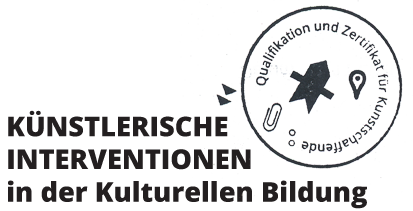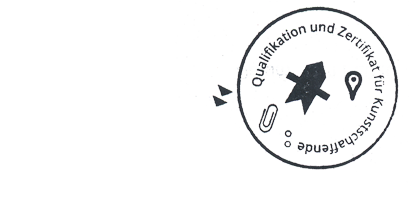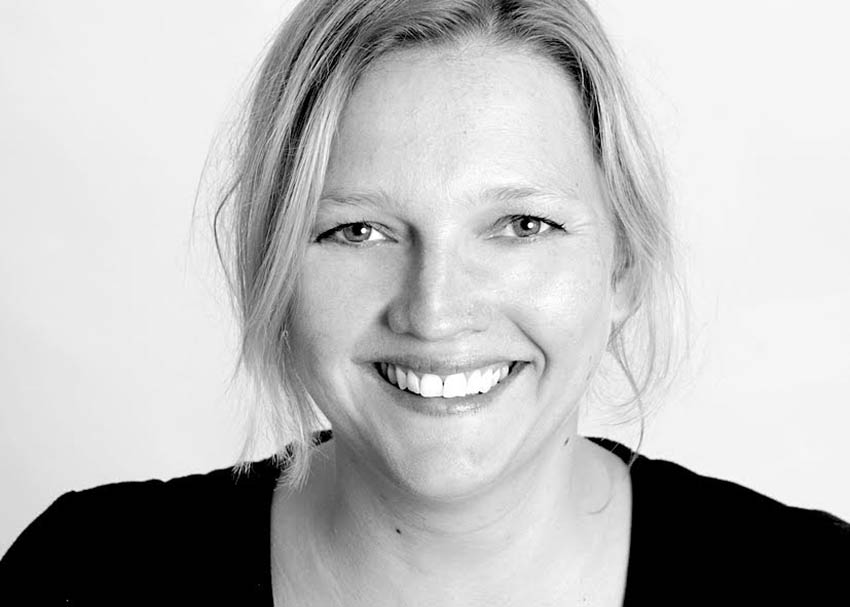



Saskia Köhler (*1976) is an actress, theatre pedagogue and culture agent in the programme “Kulturagenten für kreative Schulen NRW” (culture agents for creative schools in NRW) in Bielefeld. Following acting engagements at the Stadttheater Bielefeld and the Theater für Kinder Hamburg, since 1999, she was mainly involved in art and cultural education, for example as an artist for the mus-e Programms of the Yehudi Menuhin Foundation Germany and as the artistic director of a mus-e model school. Since 2015, she has been responsible for the thematic field of school development and artistic and cultural education as a learning guide at the Peter Gläsel School (PRRITTI education model). She works as an expert in the development and implementation of digital and creative learning formats for the PRRITTI Academy. Throughout the Federal Republic, she works as an expert and consultant on creative and artistic education processes with foundations, universities, artistic and cultural programmes and schools.
What is your professional focus?
My work concentrates on the topics of participation and design in the field of artistic and cultural education. In all my fields of activity and my work, my focus is always on initiating change processes through methodical and systemic participation and artistic interventions and establishing cooperation between cultural institutions and freelance artists. The dimensions and quality aspects of Cultural Education are of particular interest to me in this field of tension with regard to making the potential of art to benefit education visible through its transformative properties and to systemically establishing it.
What potentials do you see in the certificate course “Artistic Interventions in Cultural Education” for your specialist field?
If the arts collaborate with school as a system, learning processes can be oriented on the potentials of individuals. Interaction between modes of working, methods and approaches in art creates new access to learning which places the living environment of pupils as designers of their own learning processes at the centre. Social and artistic and aesthetic skills are gained through artistic access arising from this link, so that personal development and cooperative thinking and acting are enabled. These are skills which are more important for the future than following instructions or repeating information. Art is capable of visualising the complexity of learning processes, allowing transformations and enabling old structures to be broken open and curricula to be replaced.
Which changes are needed at cultural policy or education policy level to strengthen the potentials of cooperation with artists for Cultural Education in Germany?
Evaluations of various Cultural Education programmes over the last few years have revealed that artists cannot effect any structural changes in schools on their own. Therefore, artists as well as teachers require a new form of training. This calls for a new professional profile for artists seeking to work in an educational context. All art forms have to be offered and treated equally in schools. Furthermore, artists as well as teachers have to be structurally integrated to be able to develop their expertise on a secure basis in order to enable cooperative and participative learning.
Saskia Köhler at “Artistic Interventions in Cultural Education”
Together with Birgitta Heller-Mevißen, Saskia Köhler is taking part in the course framework as a lecturer in Module 2: “Theoretical concepts and discourses”, and in Module 8 and additional online formats, she is in particular responsible for the “Train the Trainer” programmes. If you have any queries or are interested in cooperating, you are welcome to contact zertifikatskurs [at] uni-hildesheim [dot] de.